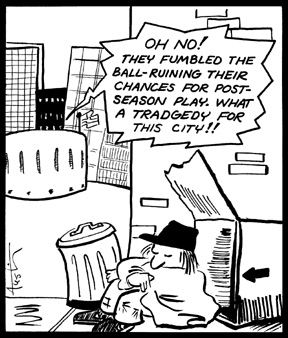by Nick Licata
Free Press Contributor
Professional sports welfare as we know it may come to an end when Initiative 16 gets on the ballot. Sponsored by Citizens For More Important Things (CMIT), the initiative will give King County residents an opportunity to vote, once again, on paying for new professional sport stadiums. The initiative will require King County Government to obtain approval of a majority of the voters to issue or incur debt in excess of $50 million for constructing or remodeling any building or facility, including the Kingdome.
Hammering on Corporate Welfare
Initiative 16 is a hammer, and has already stopped the county from issuing the stadium bonds. Originally county council members said the initiative would have no impact and voted to authorize the issuance of the stadium bonds. Within 48 hours the county's bond counsel said that the bonds might not be valid and therefore not able to be sold because of I-16.
Record-Breaking Costs
The Mariners also must have concluded that any further squeezing of the already unrealistically tight construction schedule would lead to cost overruns. As of the end of last year, major league baseball's six newest stadiums have taken an average of 30.5 months to build, and two others being built for Milwaukee and San Francisco are expected to take just as long. Additionally none of them have retractable roofs, which add a major design complication and make the Mariner's stadium the most expensive of them all.
 |
|
|
Streets Fight, Coliseums Ruleby Doug Nufer
In November, 1995, the citizens of King County voted not to fund a new baseball stadium via an increase in the general sales tax, and the Washington Supreme Court ordered the City of Seattle to return money it had collected for street repairs with an unconstitutional flat surcharge to property taxes in 1993-1995. Now, thanks to the tax collector's clumsy grab, the high-handed maneuvering by elected officials to accommodate pro sports franchises, and threats by the Mariners and Seahawks, our teams may get new stadiums before our roads receive essential repairs.
"More Stadium Blues" (WFP Issue 27 May/June 1997)
[Home]
[This Issue's Directory]
[WFP Index]
[WFP Back Issues]
[E-Mail WFP]





Contents on this page were published in the March/April, 1997 edition of the Washington Free
Press.
WFP, 1463 E. Republican #178, Seattle, WA -USA, 98112. -- WAfreepress@gmail.com
Copyright © 1997 WFP Collective, Inc.
